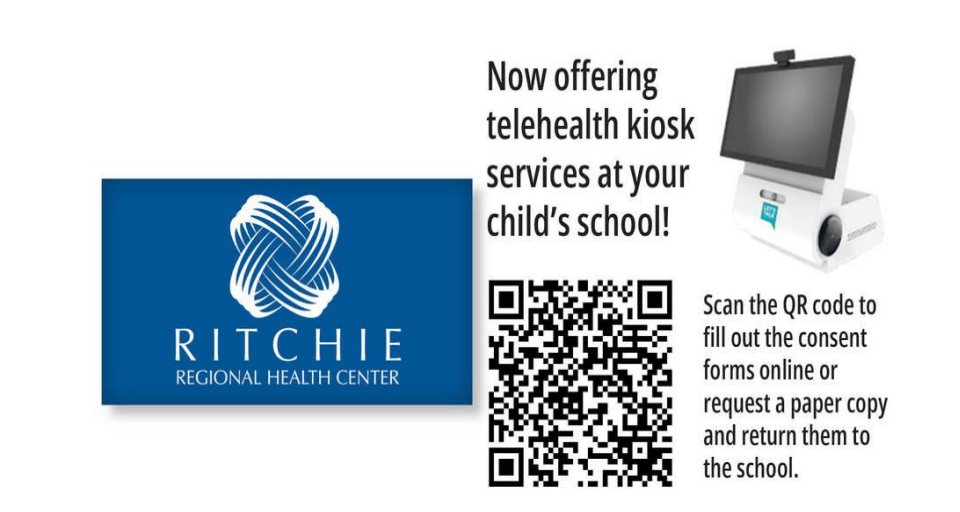WHAT IS THE 2023-2024 UPDATED COVID-19 SHOT, AND WHY IS IT NEEDED?
Coronavirus is an ever-changing health threat. Over time, we have gained understanding about the virus and COVID-19 disease prevention. The 2023-2024 updated COVID-19 shots were adapted to provide updated protection against the newer virus strains circulating in our communities. Immunity can decrease over time, and an updated COVID-19 shot reminds our bodies how to recognize the virus and even identify new strains so we can protect ourselves from some of the most serious COVID complications.
If you do get COVID-19, being up-to-date on vaccination prior to getting the virus reduces risk of severe complications, hospitalization, or even death from COVID. Getting an updated COVID-19 shot may also lower the risk of developing long COVID (i.e., extended health problems after even a mild COVID infection).
Vaccination is especially important in the fall and winter, when respiratory diseases often spread in high volume. West Virginians ages 6 months and older are recommended to stay up-to-date on COVID-19 shots.
WHO IS AT RISK FOR COVID-19?
Everyone of all ages and backgrounds is at risk. The virus that causes COVID-19 spreads from person-to-person, mainly through droplets produced when an infected person exhales or speaks, and especially when they yell, sing, cough, or sneeze. Risk for most severe illness increases with age and underlying conditions such as obesity, diabetes, and heart disease. However, anyone can get really sick with COVID.
WHAT IS “LONG COVID”?
Long COVID is broadly defined as signs, symptoms, and conditions that continue or develop after getting COVID. Some people, even people with mild symptoms or who did not know they were infected, can experience long-term effects from their infection. Long COVID can include a wide range of ongoing health problems that can last weeks, months, or years. Anyone can experience long COVID. Each time a person gets COVID, they are at increased risk of long COVID. Staying up-to-date on COVID-19 shots has been shown to reduce risk of long COVID.
WHAT IS THE BEST WAY TO PROTECT AGAINST COVID-19?
Vaccination is the best way to build protection against getting very sick, staying in the hospital, or dying from COVID-19 if you get the virus. The 2023-2024 updated COVID-19 shot offers the safest way for our bodies to build immunity against the virus that causes COVID-19. Updated shots help protect against newer strains of the virus, and they are effective at preventing the most severe outcomes of COVID. Staying up-to-date on COVID-19 shots also has been shown to lower the risk of getting long COVID.
Other tools such as improving ventilation indoors (such as opening windows or using air filtration systems), staying home when sick, wearing a high-quality mask, avoiding crowds, and hand washing provide layers of protection by reducing spread of the virus. Getting tested and starting prescription medication (for those who are eligible) early after infection are also important tools for preventing severe outcomes, such as hospitalization and/or long COVID.
WHO IS CONSIDERED UP-TO-DATE ON COVID-19 SHOTS?
West Virginians ages 6 months and older are eligible for COVID-19 vaccination. For the best protection against the virus that causes COVID-19, now everyone ages 6 months and older is eligible for at least one 2023-2024 updated COVID-19 shot to be considered up-to-date:
Most individuals ages 5 years and older* are recommended to get one 2023-2024 updated COVID-19 shot, regardless of whether they received any previous COVID-19 shot(s).
*Note: Those who are moderately to severely immunocompromised need multiple shots, including at least one 2023-2024 updated COVID-19 shot, and should consult with their healthcare provider about additional shots. l
HOW DO COVID-19 VACCINES WORK?
COVID-19 vaccines work by helping the body’s immune system build antibodies to recognize and fight the virus. COVID-19 mRNA vaccines (Pfizer or Moderna) are made of sugar, salts, lipids (fats), and messenger RNA (mRNA). The mRNA is used to make protein, which teaches our cells how to recognize the virus. The mRNA breaks down and goes away quickly, leaving in its place the blueprint for protection. Protein subunit vaccines (e.g., Novavax) package proteins alongside an adjuvant that helps the immune system respond to the virus in the future. Protein subunit vaccines have been used for more than 30 years in the United States, such as for flu and whooping cough.
ARE THE COVID-19 SHOTS EFFECTIVE?
Yes. COVID-19 shots are highly effective in preventing severe disease. Keeping up-to-date with vaccination is the best protection against more recent variants (variants are new strains that happen when a virus is able to spread and mutate). Even if you do test positive for COVID, being up-to-date on your COVID-19 shots means you’re far less likely to get very sick, need hospital care, or die from the disease.
ARE THE COVID-19 SHOTS SAFE?
Yes. COVID-19 shots were evaluated in several clinical trials and have been safely administered to billions of people in the United States and around the world. COVID-19 shots have had the most rigorous safety monitoring in history (learn more here: https://bit.ly/CovVaxSafety). Vaccination side effects are usually mild and brief. Severe reactions to vaccination are extremely rare (learn more here: https://bit.ly/C19vaxRareEvents). COVID-19 shots are safe for those ages 6 months and older.
ARE THERE COVID-19 VACCINE SIDE EFFECTS?
Sometimes. Some people have mild to moderate side effects that happen within the first few days of vaccination, and others don’t feel anything. Side effects after vaccination are a sign the body is building immunity to fight the virus. Common responses are pain, redness, and swelling at the injection site. Some people also feel tiredness, headache, muscle pain, chills, fever, or nausea. The known risks of COVID-19 illness and its complications far outweigh potential risks of having a rare adverse reaction to vaccination.
IF I HAD COVID-19 AND RECOVERED, SHOULD I STILL GET A COVID-19 SHOT?
Yes. Immunity from having COVID-19 can wear off, and previous infection(s) might not give adequate protection against new variants. Even those who had minimal or no symptoms with prior COVID could get severe disease with another infection. People who currently have COVID-19 may get vaccinated after their isolation period. Those who recently had COVID may consider delaying COVID-19 vaccination by 3 months from infection but should consider their disease risk factors and discuss with a healthcare provider.
IS IT POSSIBLE TO GET/GIVE COVID-19 TO OTHERS BY GETTING VACCINATED?
No. It is impossible for COVID-19 shots to infect anyone with the virus that causes COVID-19.

